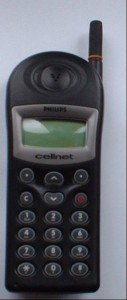When I was little, I adored The Famous Five. I wrote a letter to Enid Blyton to tell her so. This was quite a big deal. I can’t remember if I actually found some sort of address or if I just sent it to “Enid Blyton, England” in the certain knowledge that she was so famous it was bound to find her but I wrote her a fan letter.
I gushed about how much I loved The Famous Five and how wonderful she was. I took time and wrote very neatly in my best writing and sent it off, shaking with excitement because I was writing to a real author and of course she would reply and I would treasure it for the rest of my life.
She never wrote back.
Of course, the fact that she’d been dead for about 20 years may have been some sort of excuse, but still. Anyway, although my love of her books remained and I went on to devour more for years, especially the St Clare’s series, I didn’t try to connect with any more authors. Maybe some little part of me decided that she hadn’t written back because authors just don’t do that – they are mystical creatures who must be kept on pedestals. I kind of equated authors with pop stars; in fact they were even more amazing because I wasn’t really ever into pop music but books were my best friends. I think my parents did try and tell me that Enid Blyton was dead but by then the damage was done; I was SCARRED for life (well, ok that might be a slight exaggeration. But only slight *sniff*).
Anyway, I was thinking about it all the other day. I was lucky enough to receive a proof copy of a fantastic book, which I’ll be reviewing soon (if you’re interested, it was Bloodstone by Gillian Philip, the sequel to Firebrand which I reviewed on here last year as well as interviewing Seth MacGregor, the main character). There were frequent occasions when I picked up my phone and tweeted a message to Gillian to say how much I’d enjoyed a particular part. I didn’t even think about it until one really heartstopping moment after which I sent her a private message telling her how that one passage had made me feel. Then out of nowhere I remembered my Enid Blyton debacle and the contrast really struck me.
It was nothing to send an author a quick message, not just about how much I liked her work overall, but about one particular passage of one particular book. And Gillian messaged me back. This was nothing unusual, we frequently chat on Twitter but that in itself is quite amazing when you stop to think about it. I think it is amazing, actually, on many levels. As an aspiring author myself now, I dream about fan mail, who doesn’t? And things like Twitter and Facebook Pages and this blog make it so much easier to get that fan mail and feedback quickly. I reckon if I get published feedback like this will keep me motivated and and reassured that people are enjoying my writing (hopefully anyway…). And for the reader, especially younger readers perhaps, that sense of authors being mystical beings who must be worshipped from afar might be broken down as they can reach them way more easily than I could. It’s another little endorsement for the Wonders of the Internet and a reminder that we are very lucky to have the technology that we do.
I do wonder what Enid Blyton would have made of it. Would she have been on Twitter? Not likely, from some of the things I’ve heard. Maybe she is an author best admired from afar, I don’t know. But it’d be great fun to think of what her twitter name would be. @gingerbeer maybe?

